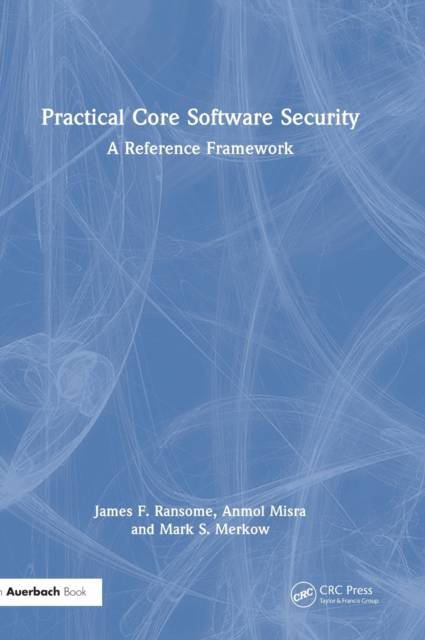
- Retrait gratuit dans votre magasin Club
- 7.000.000 titres dans notre catalogue
- Payer en toute sécurité
- Toujours un magasin près de chez vous
- Retrait gratuit dans votre magasin Club
- 7.000.000 titres dans notre catalogue
- Payer en toute sécurité
- Toujours un magasin près de chez vous
Description
As long as humans write software, the key to successful software security is making the software development program process more efficient and effective. Although the approach of this textbook includes people, process, and technology approaches to software security, Practical Core Software Security: A Reference Framework stresses the people element of software security, which is still the most important part to manage as software is developed, controlled, and exploited by humans.
The text outlines a step-by-step process for software security that is relevant to today's technical, operational, business, and development environments. It focuses on what humans can do to control and manage a secure software development process using best practices and metrics. Although security issues will always exist, students learn how to maximize an organization's ability to minimize vulnerabilities in software products before they are released or deployed by building security into the development process.
The authors have worked with Fortune 500 companies and have often seen examples of the breakdown of security development lifecycle (SDL) practices. The text takes an experience-based approach to apply components of the best available SDL models in dealing with the problems described above. Software security best practices, an SDL model, and framework are presented in this book. Starting with an overview of the SDL, the text outlines a model for mapping SDL best practices to the software development life cycle (SDLC). It explains how to use this model to build and manage a mature SDL program. Exercises and an in-depth case study aid students in mastering the SDL model.
Professionals skilled in secure software development and related tasks are in tremendous demand today. The industry continues to experience exponential demand that should continue to grow for the foreseeable future. This book can benefit professionals as much as students. As they integrate the book's ideas into their software security practices, their value increases to their organizations, management teams, community, and industry.
Spécifications
Parties prenantes
- Auteur(s) :
- Editeur:
Contenu
- Nombre de pages :
- 262
- Langue:
- Anglais
- Collection :
Caractéristiques
- EAN:
- 9781032333144
- Date de parution :
- 02-08-22
- Format:
- Livre relié
- Format numérique:
- Genaaid
- Dimensions :
- 178 mm x 254 mm
- Poids :
- 716 g







